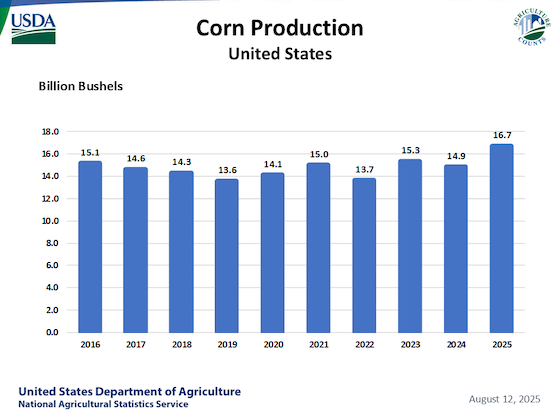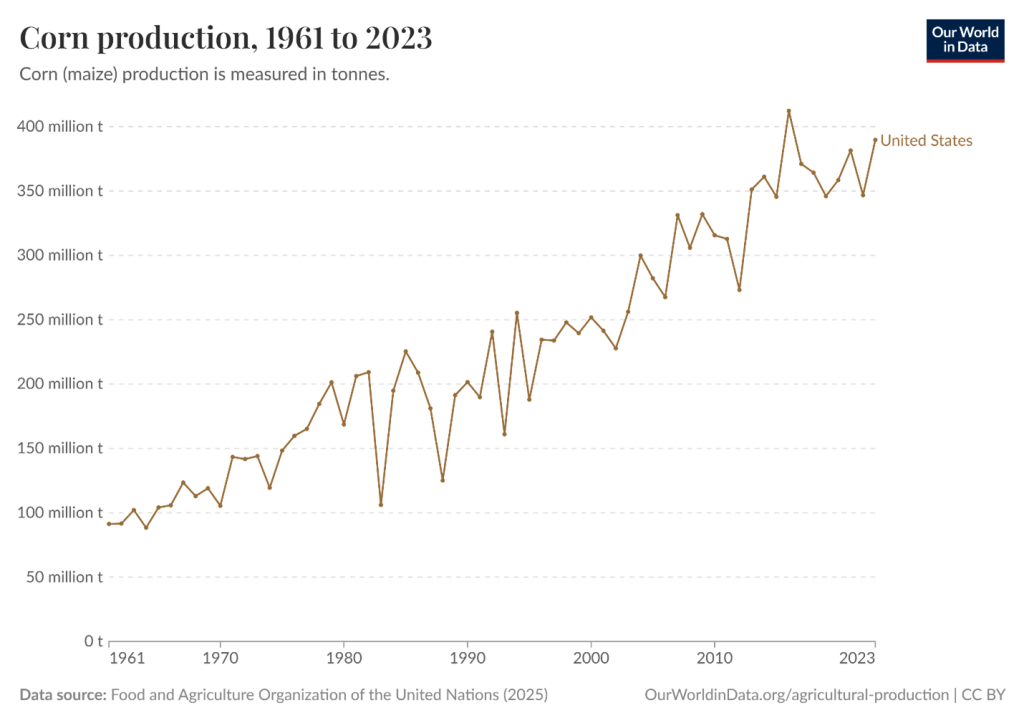The Associated Press is one of the world’s worst sources of disinformation. The AP’s self-description is the opposite of the truth:
While others may tell you how to feel about the headlines, AP tells you what actually happened. No spin. No agenda. Just journalism that respects your intelligence.
A case in point is this story on agriculture: “To get that perfect ear of corn, weather has to cooperate. But climate change is making it dicier.”
Across major corn-growing states, climate change is fueling conditions that make watching the corn grow a nail-biter for farmers. Factors like consistently high summer overnight temperatures, droughts and heavier-than-usual rains at the wrong time…
Got that? Global warming causes both droughts and too much rainfall–take your pick. In fact, neither droughts nor floods have increased.
…can all disrupt the plants’ pollination — making each full ear of corn less of a guarantee and more of a gamble.
The AP goes on to describe various problems that high temperatures can cause in growing corn, even though corn is a heat-loving crop that thrives during warm summers with plenty of rainfall. Thus, Google’s AI tells us:
Less corn is grown in Canada than in the United States because Canada’s climate, particularly in the prairie provinces, is characterized by cooler temperatures and shorter growing seasons, which are less suitable for corn cultivation compared to the U.S. Midwest. While corn is grown in parts of Canada, it’s concentrated in the more favorable climates of Southern Ontario and Quebec. In contrast, the U.S. has a large amount of land with longer growing seasons, ample rainfall, and suitable soil, creating ideal conditions for high corn yields.
But back to the AP story. What’s the point? If growing corn is “dicier,” corn yields must be down, right? The AP quotes two carefully selected farmers:
“We’d like to upgrade a tractor … or we’d maybe try to pick up some more ground,” Rynd said. “It’s hard to want to go do those things when you have a bad year like this.”
***
“This has probably been one of the most difficult growing seasons that I’ve experienced in my career,” said Philip Good, a farmer in Macon, Mississippi…
So it’s been a “bad year” with “one of the most difficult growing seasons” ever. Corn yields evidently have been declining on account of global warming, then.
But wait! U.S. corn production set an all-time record this year:
If you look at history, the trend is up, up and up:
Per-acre yield has more than tripled since 1961, and the last 15 years have seen the highest yields ever. So if “climate change” has affected corn yields, the impact apparently has been positive.
The Associated Press was once a respected news organization, but now its reporters and editors are hacks who promote liberal narratives, not facts.



















